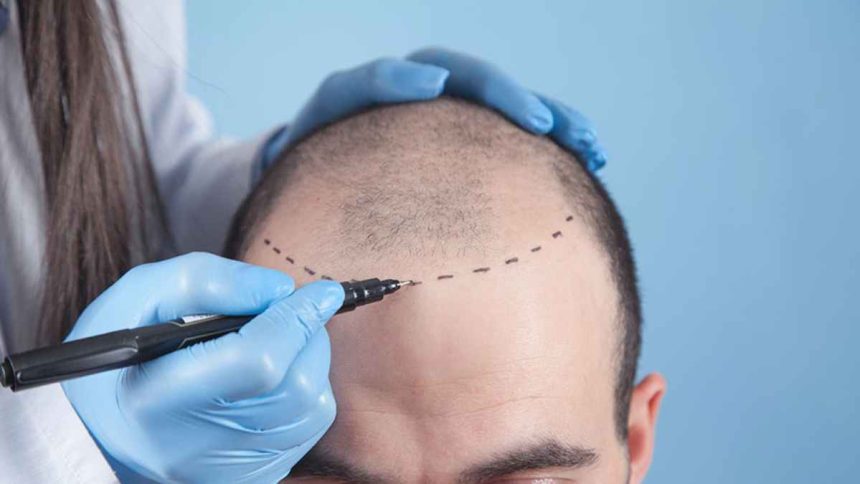Hair transplant clinics offer comprehensive services to individuals struggling with hair loss. Their mainstay, hair transplantation, is an intricate medical procedure that transplants individual hair follicles from one part of the body, often referred to as the ‘donor site’, to a bald or thinning part of the body, known as the ‘recipient site’. This typically occurs under local anaesthesia, and the specifics of the procedure vary depending on the method used.
The Hair Transplant Procedure
There are two primary methods employed by these clinics: Follicular Unit Transplantation and Extraction.
FUT, or ‘strip surgery’, is a method where a strip of skin is taken from the donor area, further broken down into individual follicular units, which are then relocated to the area with hair loss. Conversely, FUE is a technique in which individual follicular units are meticulously harvested directly from the donor region, then they are carefully implanted in the area suffering from baldness or thinning. Both methods have their merits and downsides, which a reputable clinic such as Ailesbury Hair Clinic will discuss with the patient to determine the most suitable approach.
The procedure’s complexity necessitates a dedicated, skilled team of professionals, including surgeons, nurses, and technicians, who work in tandem to ensure the process’s success. Many clinics also employ trichologists, experts in scalp and hair health, who offer a holistic view of hair loss and its treatment.
The Importance of Initial Consultation
A crucial aspect of the hair transplant journey is the initial consultation. This is a meeting between the potential patient and the clinic’s specialists, where the patient’s hair loss pattern is evaluated, and potential treatment options are discussed. The consultation is also the opportunity for the patient to express their goals and expectations, as well as to ask any questions about the procedure.
The consultation should also involve a thorough medical evaluation, including a detailed medical history and an examination of the patient’s scalp. It’s vital to share any underlying health conditions or medications, as these can impact the surgery’s outcomes or increase the risk of complications. Reputable clinics will provide honest and realistic assessments of what can be achieved through hair transplantation, and will not rush patients into making a decision.
Choosing the Right Hair Transplant Clinic
Choosing the right hair transplant clinic can be a daunting task, given the plethora of options available and the vital role these clinics play in addressing hair loss. It’s critical to consider factors such as the clinic’s reputation, the qualifications and experience of its staff, the methods they employ, and the before-and-after results of past patients.
Reputable clinics will have a track record of successful transplants and satisfied customers. They will readily provide information about the qualifications and expertise of their staff, and they will use up-to-date methods that align with best practices in the field. Furthermore, they will offer transparent pricing structures and provide post-procedure care and support.
Comparing Hair Transplant Clinics
It’s important to do thorough research when comparing hair transplant clinics. Start by shortlisting clinics that meet your initial criteria. Then delve deeper into each one, seeking out patient reviews and testimonials to gauge customer satisfaction. Look at before-and-after photos to evaluate the quality of results, and ensure that the clinics provide comprehensive information about the procedures, risks, and costs involved.
Comparisons should also include assessments of the clinic’s facilities. A good clinic will have a clean, hygienic environment, use state-of-the-art equipment, and have a dedicated team of experienced professionals. Remember, a hair transplant is a medical procedure, and therefore, the same standards of care that you would expect in a hospital should apply in a hair transplant clinic.
Post-Procedure Care and Support
Aftercare is a significant component of hair transplantation that contributes to the final outcome and patient satisfaction. The transplanted hair follicles need time to heal and grow, and during this period, the scalp can be sensitive, and special care must be taken. A competent clinic will provide detailed post-operative care instructions, including how to wash and care for the scalp, what activities to avoid, and how to manage any discomfort or swelling.
Clinics should also offer follow-up appointments to monitor the patient’s progress and deal with any concerns that arise. It’s crucial to remember that the results of a hair transplant are not immediate; it usually takes between six and twelve months to see the full effect. Therefore, a good clinic will offer support throughout this period and beyond.
Potential Risks and Complications
While hair transplant surgery is generally safe, it is not without risks. Some patients may experience side effects such as scarring, infections, unnatural-looking new hair growth, or loss of transplanted hair, known as ‘shock loss’.
Although these complications are typically rare and manageable, it’s essential to discuss them with the clinic during the consultation. They should be forthcoming about potential risks and explain how they manage complications if they arise.
Your New Hair, Your New Journey
Choosing a hair transplant clinic is a significant decision that can greatly impact your life. It requires careful research, weighing up the benefits and risks, and ultimately making a choice that best aligns with your expectations and needs. It is a journey that, in the hands of a competent and caring clinic, can lead to improved self-esteem and a renewed sense of confidence. When you commit to this journey, remember that your comfort, safety, and satisfaction should always be paramount. Hair transplant clinics not only offer a solution to hair loss but also support you in this transformative phase of your life.
Lynn Martelli is an editor at Readability. She received her MFA in Creative Writing from Antioch University and has worked as an editor for over 10 years. Lynn has edited a wide variety of books, including fiction, non-fiction, memoirs, and more. In her free time, Lynn enjoys reading, writing, and spending time with her family and friends.















